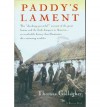Currently reading
Paddy's Lament, Ireland 1846-1847: Prelude to Hatred
Pivot: The Only Move That Matters Is Your Next One
When in French: Love in a Second Language
Beyond the Job Description: How Managers and Employees Can Navigate the True Demands of the Job
Vision and Art: The Biology of Seeing
Achieving Your Potential As A Photographer: A Creative Companion and Workbook
Reclaiming Conversation: The Power of Talk in a Digital Age
Picture Perfect Practice: A Self-Training Guide to Mastering the Challenges of Taking World-Class Photographs (Voices That Matter)
Man's Search for Meaning
Terms of Service: Social Media and the Price of Constant Connection
The Antidote: Happiness for People Who Can't Stand Positive Thinking
 Memento mori. “The psychologist Russ Harris suggests a simple exercise: imagine you are 80 years old – older if you are already 80 – and then complete the sentences ‘I wish I’d spent more time on … ‘ and I wish I’d spent less time on … ‘ This turns out to be a surprisingly effective way to achieve mortality awareness in short order. Things fall in place. It becomes far easier to follow Lauren Tillinghast’s advice – to figure out what, specifically, you might do in order to focus on life’s flavours, so as to improve your chances of reaching death having lived life as fully and as deeply as possible. Negative capability. The various approaches we have explored here frequently contradict each other on the level of details; sometimes they seem so intrinsically paradoxical as practically to contradict themselves. But in this broader sense, they all embody ‘negative capability.’ For the Stoics, the realization that we can often choose not to be distressed by events, even if we can’t choose events themselves, is the foundation of tranquility. For the Buddhists, a willingness to observe the ‘inner weather’ of your thoughts and emotions is the key to understanding that they need not dictate your actions. Each of these is a different way of resisting the ‘irritable reaching’ after better circumstances or better thoughts and feelings. But negative capability need not involve embracing an ancient philosophical or religious tradition. It is also the skill you’re exhibiting when you move forward with a project – or with life – in the absence of sharply defined goals; when you dare to inspect your failures; when you stop trying to eliminate feelings of insecurity; or when you put aside ‘motivational’ techniques in favour of actually getting things done. ….And the end result of all of this? The chief benefit of ‘openture,’ Paul Pearsall claimed, is not certitude or even calm or comfort as we normally think of them, but rather the ‘strange, excited comfort [of] being presented with, and grappling with, the tremendous mysteries life offers.’ Ultimately, what defines the ‘cult of optimism’ and the culture of positive thinking – even in its most mystically tinged, New Age forms – is that abhors a mystery. It seeks to make things certain, to make happiness permanent and final. And yet this kind of happiness – even if you do manage to achieve it – is shallow and unsatisfying. The greatest benefit of negative capability – the true power of negative thinking – is that it lets the mystery back in.” p.207-209
Memento mori. “The psychologist Russ Harris suggests a simple exercise: imagine you are 80 years old – older if you are already 80 – and then complete the sentences ‘I wish I’d spent more time on … ‘ and I wish I’d spent less time on … ‘ This turns out to be a surprisingly effective way to achieve mortality awareness in short order. Things fall in place. It becomes far easier to follow Lauren Tillinghast’s advice – to figure out what, specifically, you might do in order to focus on life’s flavours, so as to improve your chances of reaching death having lived life as fully and as deeply as possible. Negative capability. The various approaches we have explored here frequently contradict each other on the level of details; sometimes they seem so intrinsically paradoxical as practically to contradict themselves. But in this broader sense, they all embody ‘negative capability.’ For the Stoics, the realization that we can often choose not to be distressed by events, even if we can’t choose events themselves, is the foundation of tranquility. For the Buddhists, a willingness to observe the ‘inner weather’ of your thoughts and emotions is the key to understanding that they need not dictate your actions. Each of these is a different way of resisting the ‘irritable reaching’ after better circumstances or better thoughts and feelings. But negative capability need not involve embracing an ancient philosophical or religious tradition. It is also the skill you’re exhibiting when you move forward with a project – or with life – in the absence of sharply defined goals; when you dare to inspect your failures; when you stop trying to eliminate feelings of insecurity; or when you put aside ‘motivational’ techniques in favour of actually getting things done. ….And the end result of all of this? The chief benefit of ‘openture,’ Paul Pearsall claimed, is not certitude or even calm or comfort as we normally think of them, but rather the ‘strange, excited comfort [of] being presented with, and grappling with, the tremendous mysteries life offers.’ Ultimately, what defines the ‘cult of optimism’ and the culture of positive thinking – even in its most mystically tinged, New Age forms – is that abhors a mystery. It seeks to make things certain, to make happiness permanent and final. And yet this kind of happiness – even if you do manage to achieve it – is shallow and unsatisfying. The greatest benefit of negative capability – the true power of negative thinking – is that it lets the mystery back in.” p.207-209













